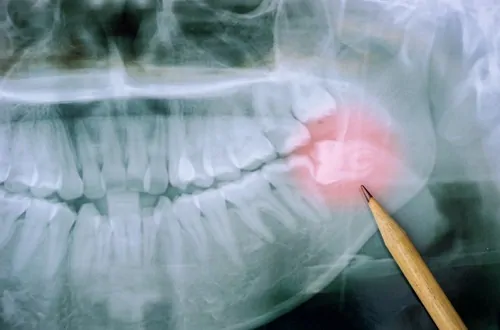What Not to Do After a Wisdom Tooth Extraction

An estimated 85% of Americans will have their wisdom teeth extracted in their lifetime. While this procedure usually takes place in the late teens or early twenties, your dentist in Douglasville may recommend it at any time, especially if they’re starting to cause problems. Even though wisdom teeth surgery is incredibly common and doesn’t typically cause problems, there are some things you should avoid after having a wisdom tooth extraction.
Things to Avoid
Although the recovery time from wisdom teeth surgery is usually pretty quick, there are some key things to avoid during this time to help speed up the healing process and avoid complications.
- Chewing
Of course, you need to eat while you’re recovering, but you do need to be careful about what you eat. Your dentist in Douglasville would recommend that you avoid hard, sticky foods during the first 72 hours.
- Activity
One of the best ways to promote healing is to rest. Avoid doing any strenuous physical activity for three days following surgery. Doing too much too soon can make bleeding, swelling, and pain worse.
- Smoking
Ingredients in cigarettes and cigars are certainly cause for concern, especially after surgery, but the action of dragging on a cigarette can be even more problematic. Pulling in air from a cigarette, or even a straw, can loosen the blood clots protecting and sealing the surgical sites. If those blood clots are dislodged too early, it can lead to a painful condition known as dry socket.
Signs of a Problem
Many wisdom teeth extractions occur without any problems, but the risk for complications doesn’t go away completely. Here are some signs that require a call to your dentist or oral surgeon.
- Excessive pain, bleeding, or swelling after three days
- Pus coming out of the surgical site or nose
- A fever over 100 degrees Fahrenheit
- Difficulty swallowing or breathing
- Facial numbness
What Should You Do After Surgery?
We’ve covered some of the things you shouldn’t do while recovering from having your wisdom teeth taken out, now let’s talk about something you should do.
- Ice Often
Ice is one of the best ways to reduce swelling and ease pain. Apply a cold compress to the affected and keep the area cold. However, make sure to have a thin barrier between the ice pack and your skin.
- Clean the Area
Your dentist may provide or recommend that you use a mouthwash during recovery in order to keep the area clean. Use it, but use it gently. Swishing slowly and softly will clean the areas without the risk of damage.
- Take Medications
Antibiotics and pain medication may be prescribed after your treatment. Take these as recommended as they can help with both preventing infection and easing pain during your recovery.
Not everyone will need to have their wisdom teeth removed, but most people will. Make sure to see your dentist in Douglasville regularly and report any symptoms of wisdom tooth pain at that time. If it’s recommended that you have your wisdom teeth extracted, always feel free to ask questions so you feel confident in the procedure and healing time.
Do I Really Have to Get My Wisdom Teeth Taken Out?

Extracting wisdom teeth is an incredibly common procedure. In fact, over 90% of Americans have their wisdom teeth removed. While there are some occasions when wisdom teeth surgery isn’t necessary, more often than not, it’s recommended to prevent additional problems and pain in the future. Let’s take a look at why so many Americans have their wisdom teeth removed and why our dental office in Douglasville may recommend it for you.
There’s Not Enough Room
Perhaps the most common reason your dentist in Douglasville may recommend having your wisdom teeth taken out is that there simply isn’t enough room for these four teeth to fit. If there’s not enough room in your mouth and the teeth are allowed to erupt anyway, other teeth may shift, and this can cause additional problems. For example, you may need orthodontics to correct any overcrowding or crookedness that may occur. Your bite can also be affected by overcrowding, which can lead to jaw pain, headaches, and neck pain.
Impacted Wisdom Teeth
Another problem with not having enough room for wisdom teeth to erupt properly is that they can get stuck developing in the bone. This is referred to as having impacted wisdom teeth. Once the teeth are impacted, treatment tends to become more complicated, so it’s best to catch any potential problems with wisdom teeth and remove them early. If your wisdom teeth become impacted, your Douglasville dentist will talk to you about the most appropriate treatment to help.
Wisdom Teeth Are Hard to Take Care of
Wisdom teeth, also known as third molars, are situated all the way in the back of the mouth. Because of this positioning, it can be difficult to reach them with a toothbrush and floss. When not cleaned thoroughly, bacteria can linger around and increase the risk of cavities and even gum disease.
Seeing the dentist at least every six months is important for everyone, but especially for those who are in the prime years of wisdom teeth development, usually between the ages of 17 and 25. At your visits, your dental team can keep an eye on your wisdom teeth development through regular x-rays and make the appropriate treatment recommendation for you when it’s the right time.
If your regular checkups at our dental office in Douglasville show that your wisdom teeth are putting you at risk for impaction or greater problems later on, we will probably recommend having them removed to keep your mouth in its best, healthiest shape.



